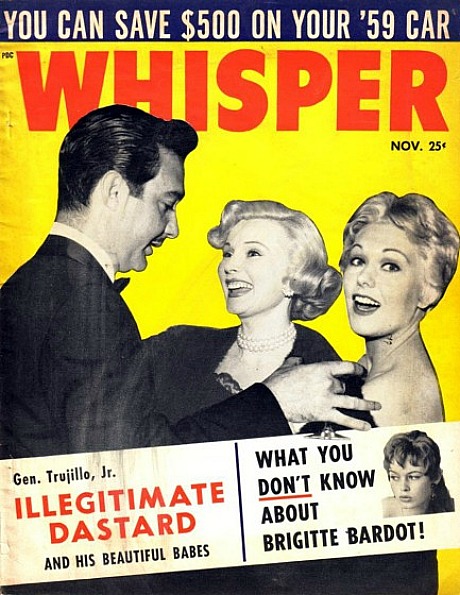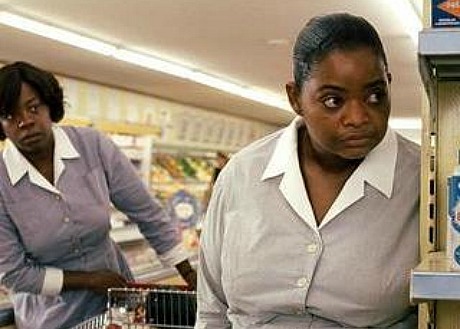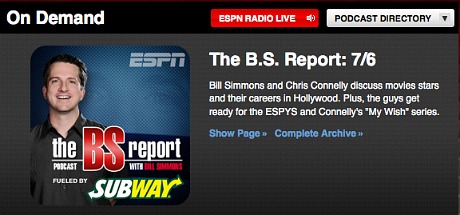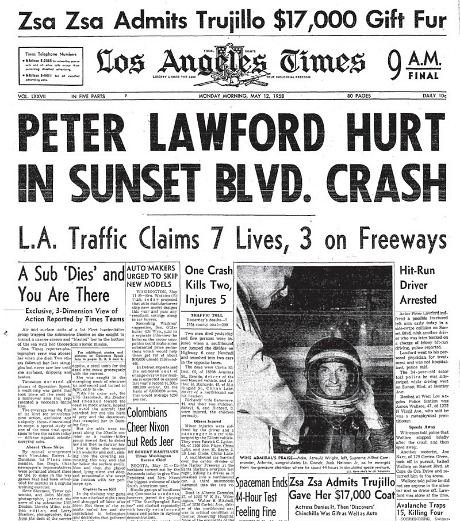A mere two days after coming upon a 1958 Los Angeles Times front-page headline informing that Zsa-Zsa Gabor had admitted accepting a $17,000 fur coat from Ramfis Trujillo, the Uday Hussein-like son of the Dominican Republic dictator Rafael Trujillo, I discovered a website showcasing 1950s-era covers of Whisper magazine, apparently a slimier, runtier version of Confidential, and a November 1958 story riffing on Trujillo, Gabor and Kim Novak, whom the dictator’s son also allegedly “knew”, so to speak.
I wasn’t looking for Ramfis Trujillo material, mind. His Zsa-Zsa connection was a secondary headline — a glancing peripheral — alongside the Peter Lawford broken-arm story I satirized the other day. But he turned up again this morning nonetheless.
Shawn Levy‘s biography of Porfirio Rubirosa, “The Last Playboy,” is “filled with Trujillo stories, including a lengthy chapter about the Ramfis/Zsa Zsa/Kim Novak affairs,” Levy informs. Also: a history of Confidential and other magazines takes up most of a chapter.”
The Pulp International summary partially reads as follows:
“Could one of the most brutal killers in the world openly hobnob with the Hollywood set today? We doubt it. But back in the day, a few rumors of murder only bolstered a man’s adventurous reputation, as proved by this November 1958 Whisper showing Rafael ‘Ramfis’ Trujillo, Jr. charming Zsa Zsa Gabor and Kim Novak. One or both women, you may notice, actually appear courtesy an X-acto knife and glue, but what self-respecting tabloid has time to locate a legit photo when paste-up will do the job almost as well? Trujillo did date and bed both Gabor and Novak in real life, which makes this cover technically accurate, and makes him the second most enviable Dominican jet-setter in history.
“Ramfis Trujillo reportedly gave most women that frisson some find irresistible, but his life wasn’t all starlets and champagne. Though he wanted nothing more than to be a playboy, there was an obstacle in the form of family baggage. Specifically, his father was a sadistic military dictator who had been put in power in the Dominican Republic by the CIA. Trujillo, Sr. expected his son to continue in the family business. This had been abundantly clear to Ramfis since the day his father made him a full general — with full pay — at age nine. For this and other reasons, he grew up with a warped sense of power and, by the time of this Whisper cover, had already ordered several murders and indulged in the occasional gang rape.
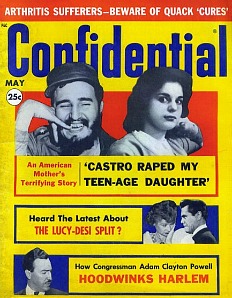
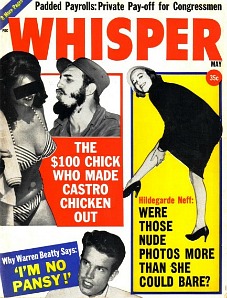
“He might have been considered a classic chip-off-the-old-block, save for rumors that Ramfis’s father was actually a Cuban named Rafael Dominicis — hence the “illegitimate dastard” tag in the banner. But the story about Ramfis being illegitimate was strongly denied by everyone involved (except Dominicis, who ‘disappeared’).
“In any case, through the late 50s Ramfis tomcatted his way from Hollywood to Paris, and only occasionally let his urbane manner slip to reveal someone considerably less charming beneath. He seemed to have settled into his chosen lifestyle permanently when he married an actress named Lita Milan, below, who had starred opposite Paul Newman in The Left-Handed Gun.
“But back in the Dominican, the impulsive Rafael Trujillo, Sr. was behaving less and less like the good lapdog the CIA had put in charge three decades earlier. Eventually, his U.S. benefactors turned against him and he died in a fusillade of possibly CIA-arranged bullets.
“Junior succumbed to the pull of familial duty, as well as the desire for revenge, and flew back to the Dominican to restore order. This involved personally killing some of the participants in his father’s assassination. While this must have given him great satisfaction, it did little to stabilize the country. Under pressure from both internal enemies and the U.S., Ramfis Trujillo fled to Spain less than a year later with a casket containing millions in cash, jewels, bonds, and his father. By 1969 Jnior was dead too, due to complications stemming from an automobile accident in Madrid.
“In the end Ramfis Trujillo presents an interesting question of nature versus nurture — was he meant to be a ladykiller, a real killer, or both?”

